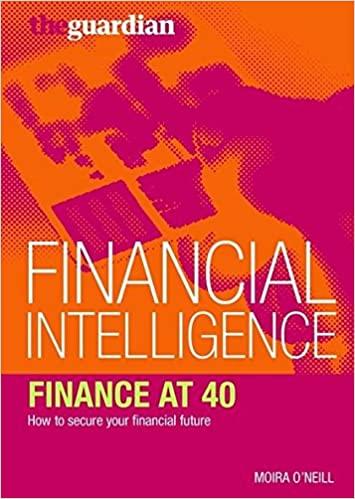Answered step by step
Verified Expert Solution
Question
1 Approved Answer
1.For a portfolio of 40 randomly selected stocks, which of the following is most likely to be true? The riskiness of the portfolio is greater
1.For a portfolio of 40 randomly selected stocks, which of the following is most likely to be true? The riskiness of the portfolio is greater than the riskiness of each of the stocks if each was held in isolation. The riskiness of the portfolio is the same as the riskiness of each of the stocks if each was held in isolation. The beta of the portfolio is less than the average of the betas of the individual stocks. The beta of the portfolio is equal to the average of the betas of the individual stocks. The beta of the portfolio is larger than the average of the betas of the individual stocks. 2.Which of the following bonds has the greatest interest rate price risk? A 10-year $100 annuity. A 10-year, $1,000 face value, zero coupon bond. A 10-year, $1,000 face value, 10% coupon bond with annual interest payments. All 10-year bonds have the same price risk since they have the same maturity. A 10-year, $1,000 face value, 10% coupon bond with semiannual interest payments. 3. A 10-year bond pays an annual coupon, its YTM is 8%, and it currently trades at a premium. Which of the following statements is CORRECT? (Points : 5) The bond's current yield is less than 8%. If the yield to maturity remains at 8%, then the bond's price will decline over the next year. The bond's coupon rate is less than 8%. If the yield to maturity increases, then the bond's price will increase. If the yield to maturity remains at 8%, then the bond's price will remain constant over the next year. 4.An investor is considering buying one of two 10-year, $1,000 face value bonds: Bond A has a 7% annual coupon, while Bond B has a 9% annual coupon. Both bonds have a yield to maturity of 8%, which is expected to remain constant for the next 10 years. Which of the following statements is CORRECT? (Points : 5) Bond B has a higher price than Bond A today, but one year from now the bonds will have the same price. One year from now, Bond A's price will be higher than it is today. Bond A's current yield is greater than 8%. Bond A has a higher price than Bond B today, but one year from now the bonds will have the same price. Both bonds have the same price today, and the price of each bond is expected to remain constant until the bonds mature
Step by Step Solution
There are 3 Steps involved in it
Step: 1

Get Instant Access to Expert-Tailored Solutions
See step-by-step solutions with expert insights and AI powered tools for academic success
Step: 2

Step: 3

Ace Your Homework with AI
Get the answers you need in no time with our AI-driven, step-by-step assistance
Get Started


